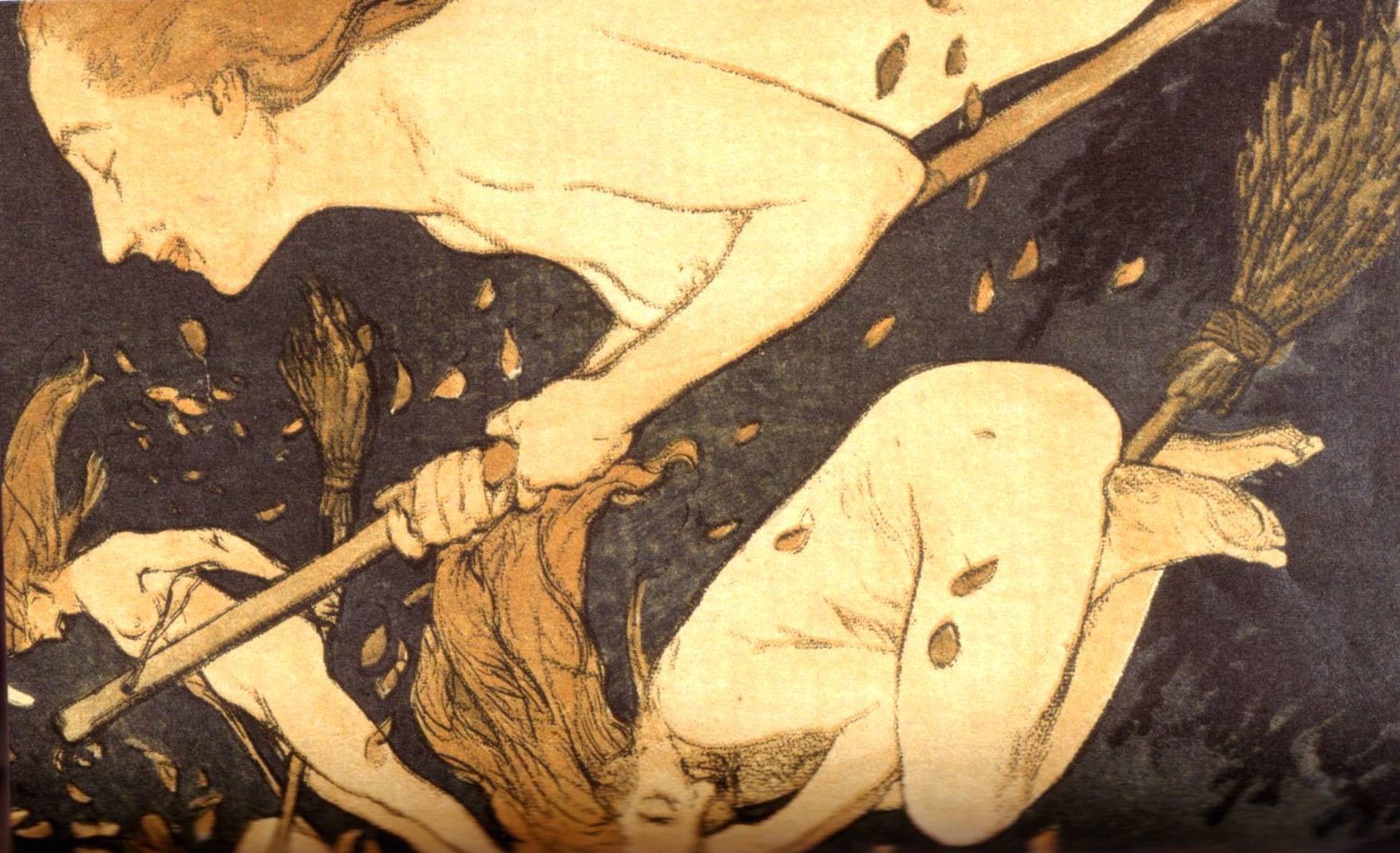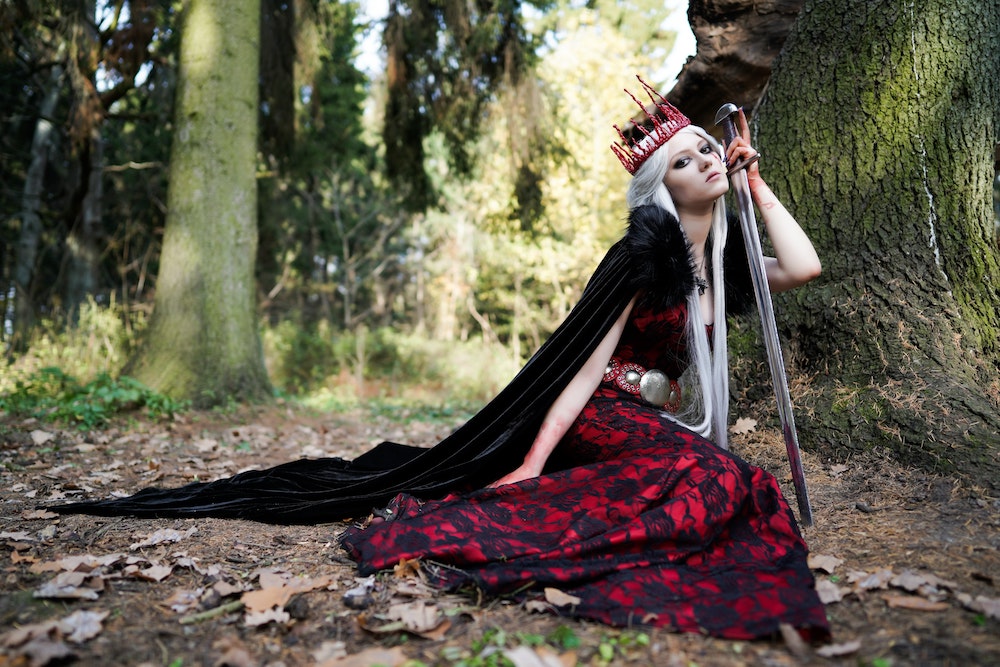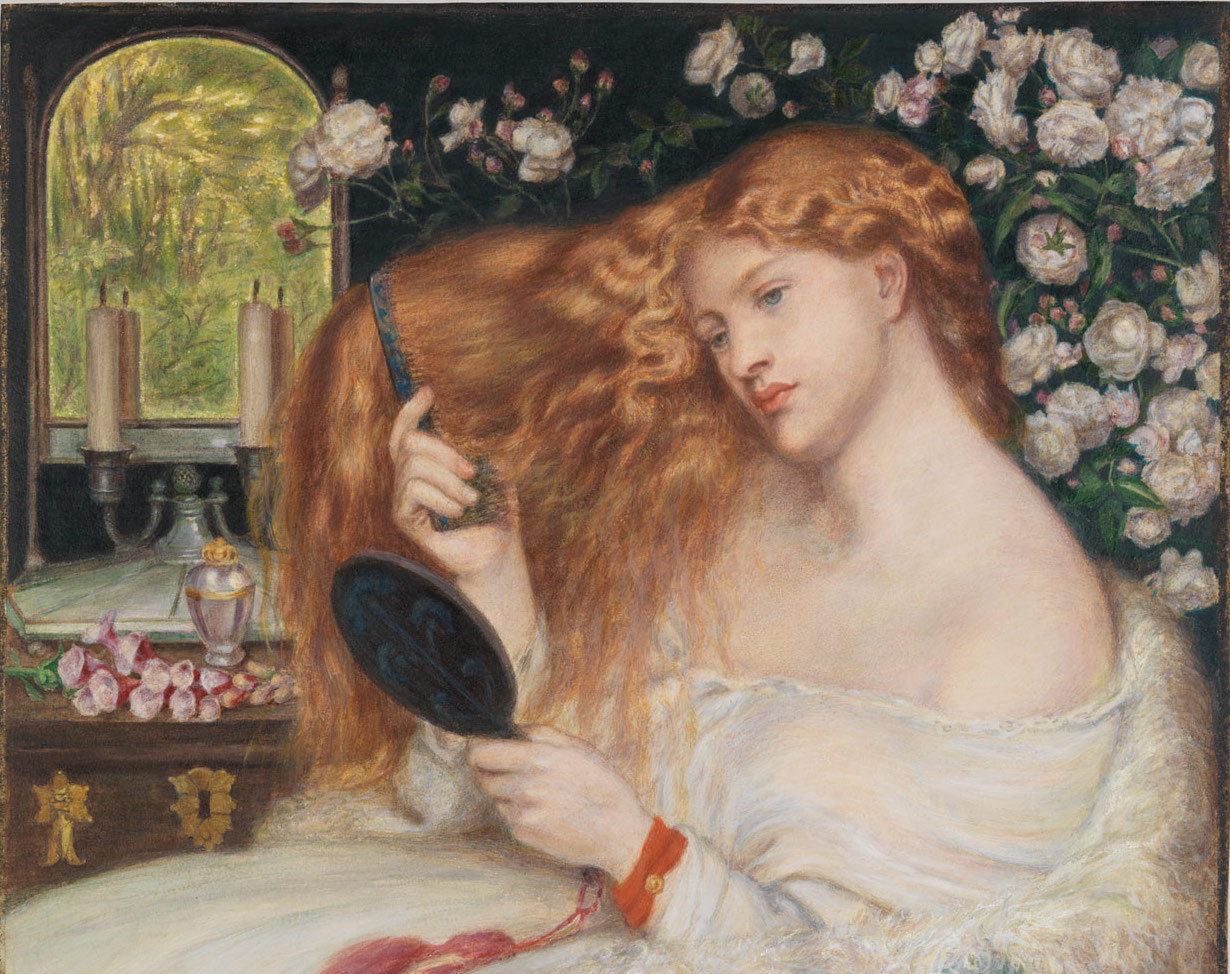Books & Culture
‘I Was a Witch Because People Hated Me & No One Knew Why’
James Gendron’s ‘Weirde Sister’ is a seven-chapter biography in verse of a woman executed for witchcraft

“If you’re a girl & you want to be heard / Then maybe have a demon flap your gap,” suggests James Gendron in his book of narrative poetry, Weirde Sister. In a seven-chapter story in verse, Gendron assumes the voice of a woman who was accused of, and ultimately executed for, witchcraft during the witch trials of the early modern period. As history is narrated by those who survive it, and the powerless rarely get to dictate their legacy, Weirde Sister is a crucial act of bearing witness.
The book grapples with “the arbitrary / Network of intersectional oppression / Known as Early Modern Europe,” rendering an historic atrocity with universal urgency. Serving as testimony submitted over three centuries after the trials, it is both excavation and exoneration. And while fascination with witch hunts may have timeless appeal, Weirde Sister is also a timely appraisal of the present moment. Gendron injects a politics of eternity into the dark heart of the story, which pulses with the abiding truth that “humans are capable of such / Inhumanity it doesn’t really seem inhuman.”
Gendron injects a politics of eternity into the dark heart of the story.
As expressed in his acknowledgements, Gendron conceived of Weirde Sister “in solidarity with every person whose mere existence terrifies the powerful.” Indeed, the book is driven by imaginative leaps of empathy. Gendron’s narrator speaks from the margins with sensitivity and sincerity, claiming: “I was a witch because / People hated me & no one knew why.” When she first signs a contract with Satan, she is merely grateful for the attention and care the deity pays her. Her observations are inflected with a sense of bewilderment at the evils of the world, even as she acknowledges that her own precarious position within it is interpellated by state and social systems of power. She defends Satan as misunderstood, blameless in the ordering of the world as we know it:
“See this world is what is evil
Here where they push the kid
With the lice down the stairs
Where torture is not confined
To the realm of genre fiction
But undergirds the apparatus of state power”
It’s this same world order that allows the tourist economy of Salem to thrive on spooky sensationalism, willful amnesia glossing over histories of genocide and state violence. Gendron is clear about his own complicated interest in the Salem Witch Trials, explaining in the book’s preface that as a child he “felt normal in Salem because [he] was weird everywhere else.” The solace the place can provide is due in part to the town’s hokey Halloween infrastructure — what Gendron calls the “spooky-industrial complex” — which has of course arisen from a real tragedy.

Yet Gendron wonders if perhaps it is still better to be mocked than to be forgotten, pointing to countless other atrocities never commemorated. To this day, no one knows what was done with the accused witches’ corpses. The exact location of their deaths was only confirmed in 2016, and almost too perfectly, the site now abuts a Walgreen’s. These are the kinds of juxtapositions Gendron highlights and plays inside, creating fresh absurdities by confounding the old world with the new. Exhuming the witches’ memories in a sort of modern drag, he recontextualizes the trials in order to restore the human suffering at the story’s core.
Perhaps it is still better to be mocked than to be forgotten.
Gendron is at his most searingly lucid when exposing the arbitrariness of power and the pain it inflicts, though he is careful that Weirde Sister does not read like a treatise. Amid gruesome descriptions of bodily and emotional trauma appear aphoristic snatches of truth such as “The law too nakedly / scaffolds the halls of power” and “Men always think their feelings are your fault.” Such sharp observations are buttressed by a wry, winking sense of humor. The witches sleep on “cattresses” while ale becomes “the beverage of choicessity” and Satan “jots down new ideas for STDs.”

Satanism itself is treated as a sort of liberation theology, solace from the omnipresent threat of Puritanical violence. It seems the natural choice to take delight in the perversity of Satan over that of persecution. And Gendron’s delight is contagious, as when he writes, “Roll every tattoo in history into a ball / And light it on fire: / That’s just one grain of sand / On Hell Beach, baby / A beach where suffering is / Considered totally worth it.”
Gendron sometimes approaches this suffering slant, with a smile. Other moments of the book ring out with the intensity of their contemporaneity. Is it possible to think of witch hunts in 2017 without also conjuring the image of an American president who targets his country’s most vulnerable populations, even as he cries that any basic scrutiny is a “total witch hunt”? There is intrinsic value in reexamining the systems of power that allowed for three centuries of witch hunts, which “claimed an estimated 50,000 lives — a world-historical tragedy of which the Salem Witch Trials are but a late and geographically remote aftershock.” Perhaps the aftershocks are ongoing. Gendron’s consideration of a past tragedy is also a dark mirror for the modern world:
“Women can now be tried & even executed
For a host of crimes of a primarily sexual nature
A highly ambiguous sign of progress
And this right to be murdered by the state
Even accrues to children in cases
Of petty theft & animals convicted
Of involvement in acts of maleficent witchcraft
Highlighting the paradox that equality
Under the law often begins with the
Universalization of heretofore selective
Forms of oppression, the opening of new
Horizons in disenfranchisement
And the inequitable widening of the path
Into the graveyard”
If Weirde Sister’s critical lens reflects poorly on humanity, it does so in the most humane spirit, like a plea for improvement. Or as Gendron writes, “This is not an anti-human feeling / This is a feeling of wanting to protect humans from people.” As new horizons in disenfranchisement open up, Weirde Sister is a call to action, a necessary reminder that everything old is new again.










